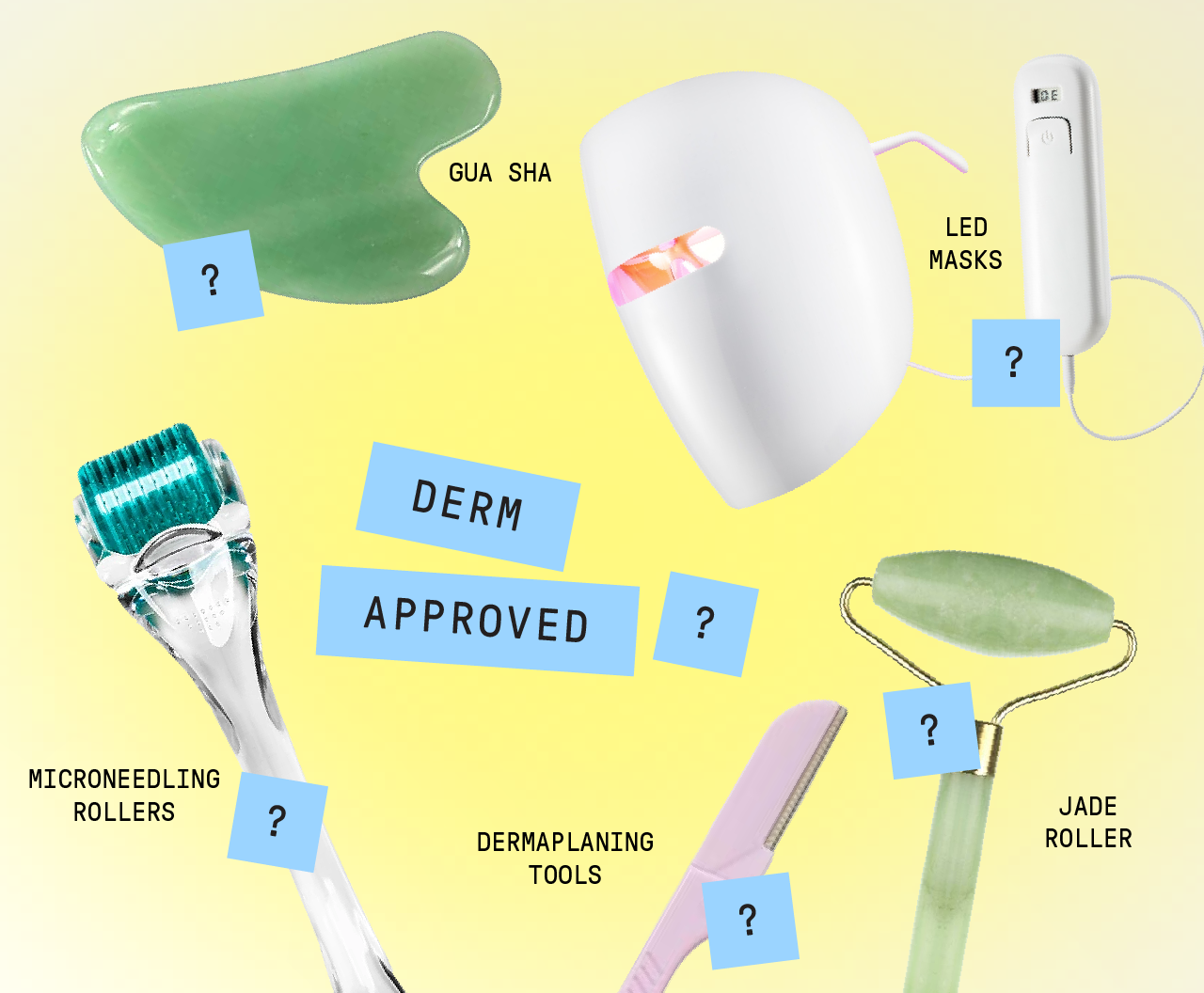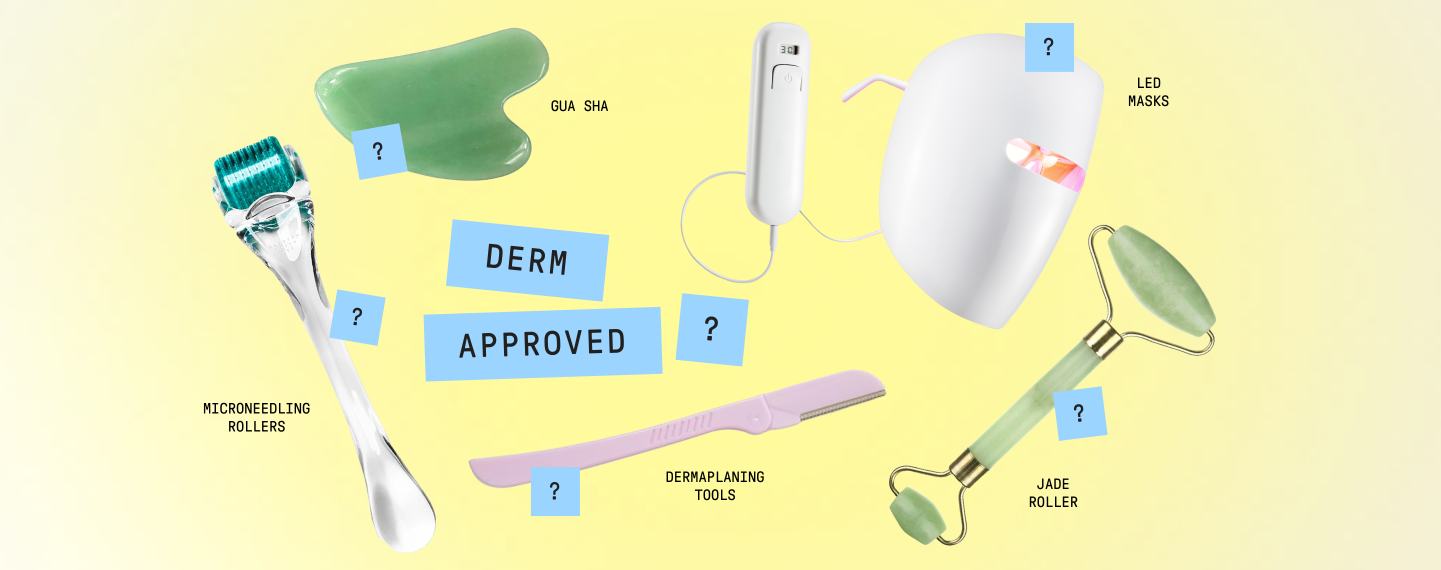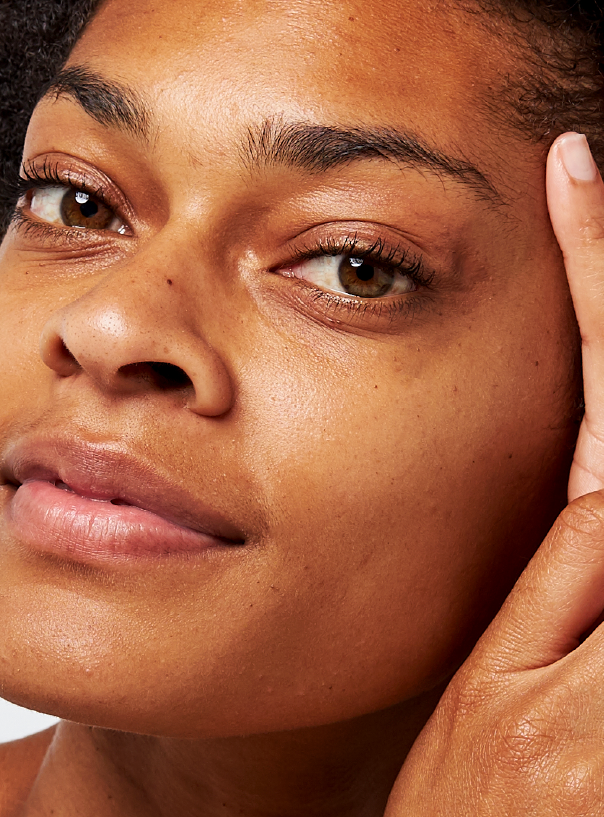Deep Dives
A Dermatologist's Take On 4 Popular Skincare Tools


SHARE
Deep Dives
A Dermatologist's Take On 4 Popular Skincare Tools
Medically reviewed by Aimee Paik, MD
Written by Annie Lam
Last updated 3/2/2022
Skincare tools are a hot commodity in the skincare world, but are they really worth the hype? From a facial steamer to a facial cleansing brush, there are a lot of skincare tools out there. Today board-certified derm Dr. Aimee Paik is sharing her take on these popular skincare devices. We'll be breaking down what these tools are and if they're actually as effective as they claim to be.
Tool #1: Jade Roller & Gua Sha
Many people love to use a facial roller or gua sha tool in their skincare routine. They originate from Eastern cultures and have been used for thousands of years for facial massage. Dr. Paik's take? "These facial tools may help facilitate lymphatic drainage and facial congestion when used properly." This can help reduce puffiness and improve blood circuliation by draining lymph (the fluid that flows through your lymphatic system).
A facial roller won't have much of an effect on typical acne, but Dr. Paik mentions that "lymphatic massage has been known to help rosacea and may result in reduced redness and breakouts."
Dr. Paik recommends to "always direct tools in the direction of desired lymphatic drainage, from the center of the face outwards." Don't forget to keep your facial roller, gua sha stone, and other skin care tools clean by washing them after each use with soap and water.
Tool #2: Microneedling Rollers
Microneedling rollers are among many popular skincare tools. Microneedling is a common procedure done by medical professionals and works to stimulate collagen production to help with uneven skin texture and acne scarring.
However, you may want to steer clear of an at-home microneedling tool. "While the science may support these treatments, in actuality they seem very risky for at home use," says Dr. Paik, "there is a very real risk of infection, irritation, and scarring with limited guidance on how to perform this procedure or what products to use afterward."
So if you've been considering microneedling for your dark spots, our take is to leave this treatment to the medical professionals. They're well trained and will take the proper precautions to ensure the treatment is done safely and effectively.
Tool #3: At-Home LED Light Masks
LED Light Masks are popular skin care tools that often catch the eye of skincare junkies. While these big LED light masks are photo-worthy, are they effective enough to treat your skin concerns? Typically in-clinic LED light therapy treatments work to treat a variety of skin conditions like acne, hyperpigmentation, and fine lines/wrinkles.
In terms of an at-home LED light therapy device, "there is some evidence to suggest these devices may be helpful for acne and other skin conditions," explains Dr. Paik. While there isn't an overwhelming amount of evidence, it may be worth giving this device a try because it can't do much harm.
According to Dr. Paik, "if nothing else, they are safe to use with few risks." So if you've been tempted to add an LED light therapy mask to your set of skin care tools, it could be a fun tool or device to try out!
Tool #4: At-Home Dermaplaning Tools
The last skincare tool that we'll be talking about is the at-home dermaplaning tools. According to Dr. Paik, "dermaplaning will remove the top layers of the skin that are "dead" which can result in a temporarily smoother and brighter appearance."
When it comes to at-home tools, we'd recommend being gentle with your skin. Sometimes called a peach fuzz removal device, these dermplaning tools remove dead skin cells from the surface of the skin. While this can provide an instant smoothing effect, try to avoid doing this procedure too often.
"If overdone, this will weaken the skin barrier and leave skin vulnerable to dryness and irritation," explains Dr. Paik, "I would proceed very cautiously and be careful not to overdo it."
Get expert treatment for all your skin concerns
While we all love a good skin care tool or device, there's no better way to treat your skin than with consistent at-home treatment. Whether your skin concern is acne, fine lines/wrinkles, uneven skin tone, or clogged pores, we will help you on your journey to healthy skin. Ready to get customized treatment for your skin? Get started with Apostrophe today!
Like what you just read? Sign up for our email list to get the scoop on skincare science delivered straight to your inbox.

Deep Dives
A dermatologist shares his thoughts on the recent studies about benzoyl peroxide and benzene.
Read More
Education
What is milia?
What is milia? Today, we’re jumping into one type of bump that you may have heard about most commonly in infants — milia.
Read More
Education
Best moisturizer for acne-prone skin
If you have combination acne-prone skin, figuring out which moisturizer is best for your skin might be tough. In this guide, we break down the best moisturizer for combination, acne-prone skin.
Read More
